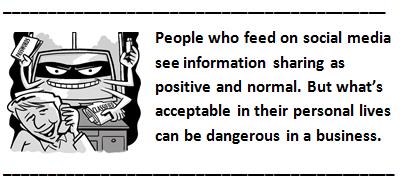 As technology expands, so do employers’ fears that ex-employees will share company secrets with their new employers.
As technology expands, so do employers’ fears that ex-employees will share company secrets with their new employers.
Last month, a 30-year employee at DuPont was sentenced for stealing confidential company files about the production of Kevlar (violating a Dupont confidentiality agreement) and then handing over the files to his new employer.
And it’s not just a tech issue. When an executive who knew the “nooks and crannies” recipe for Thomas’ English Muffins jumped ship, a court stopped him from giving the secret to a competitor.
“Every business, whether or not it has a ‘secret recipe’ or highly specialized technology, almost certainly has information that gives it a competitive advantage, and it usually has to be shared with employees who may not be around tomorrow. The good news is there are ways to mitigate the risk.” says James Pooley, author of Secrets: Managing Information Assets in the Age of Cyberespionage.
Here are 8 ways to minimize those risks associated with departing employees:
1. Know what the law does—and doesn’t––protect. The law protects only trade secrets, not employee skill or general knowledge. What’s the difference? The skill a worker acquires practicing her craft over time is hers to keep. However, if any of those techniques or pieces of information give her employer a competitive advantage, aren’t generally known and are safeguarded by the company, they are likely to be considered trade secrets.
2. Clearly convey your expectations to job seekers. It’s a good idea to be clear that applicants will not bring with them information that could get you in trouble. Conduct a pre-employment interview agreement that spells out what prospective employees can and can’t disclose from their previous jobs; it’s an indispensable precaution against inadvertent information theft.
“Promoting a culture of respect for others’ information rights reduces the chances of becoming involved in costly legal battles,” says Pooley.
3. Proactively re-recruit your best knowledge workers. Hold on to your key people whenever possible. Proactively incentivize them to stay with your company by ensuring that they remain happy, appreciated and well compensated. Keep in mind that money usually isn’t the primary driver for loyalty.
4. Take advantage of nondisclosure agreements. These documents legally bind employees not to share certain information assets (often trade secrets). Employees are less likely to compromise confidential information when they know it’s of such importance that the company has tied it to a document. Likewise, competitors are less likely to encourage new employees to divulge information if an NDA exists.
information assets (often trade secrets). Employees are less likely to compromise confidential information when they know it’s of such importance that the company has tied it to a document. Likewise, competitors are less likely to encourage new employees to divulge information if an NDA exists.
Anyone who may have access to your trade secrets should sign an NDA on Day One.
5. Use noncompete agreements with care. Increasingly unpopular with judges (not to mention employees), noncompete agreements can be expensive to enforce and sometimes backfire. The terms of this kind of agreement can range from compensating workers for not seeking employment with any competitor to simply prohibiting competing for a certain period of time within a particular geographical area.
“Noncompete agreements are controversial in comparison with NDAs,” Pooley comments. “Judges sometimes hesitate to enforce noncompetes because they impinge on the free movement of labor.”
6. Directly address the digital risk. People who feed on social media see information sharing as positive and normal. But what’s acceptable in their personal lives can be dangerous in a business. Beware the risks posed by employee-owned devices, the cloud, file sharing and more.
“Technical controls like MDM (mobile device management) and NBA (network behavior analysis) software do help, but aren’t sufficient,” says Pooley. The best strategy is employee training and visible enforcement.
7. Take potential security breaches seriously. If you think one of your staff may have violated your confidence, investigate whether the employee has exhibited any unusual behavior such as excessive copying, downloading, emailing or erasing of records. Review his files, emails, and telephone records. Only after gathering this information and consulting with legal counsel should you confront the employee.
8. Never skip the exit interview. Even with voluntary departures, it’s important to share your concerns and learn about the employee’s plans. The potential for harm isn’t limited to “stolen” data—simple misunderstandings can also lead to distracting, expensive litigation.
Bottom line: “Profitable secrets falling into the wrong hands really can spell doom for a company,” says Pooley. “It’s essential for any organization that deals in information to actively protect its intangible assets from the watchful eyes of competitors. Fortunately, with responsible practices, secrecy is still possible in the online age.”
